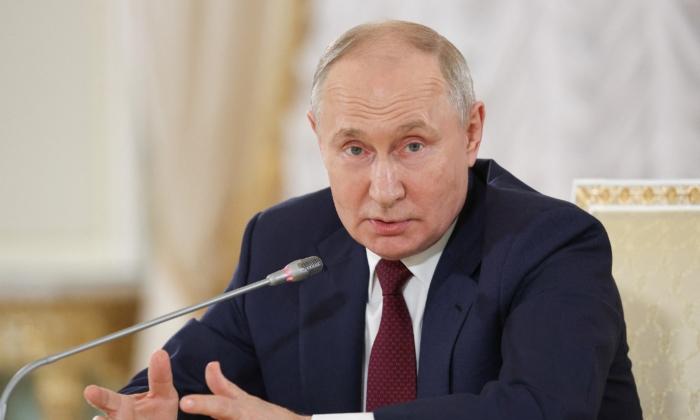Exploring the Rejection of Putin's Ukraine Peace Proposal by the US
The ongoing conflict in Ukraine between Russian-backed separatists and Ukrainian forces has been a cause for concern for the international community. Efforts to find a peaceful resolution have been stalled for years, with no agreement in sight. Vladimir Putin, the President of Russia, recently made a new offer for peace negotiations, but it was swiftly rejected by the United States. This article will examine Putin's offer, the reasons for its rejection, and the potential implications for the future of the conflict.
Putin's Offer Putin's latest offer for Ukraine peace negotiations included a proposal for a ceasefire, the withdrawal of heavy weaponry from the frontlines, and the implementation of a special status for the separatist-controlled regions in eastern Ukraine. He argued that this offer aimed to de-escalate the conflict and find a sustainable solution. Additionally, Putin expressed a willingness to engage in direct talks with Ukrainian President Volodymyr Zelensky, a move that could have been seen as a positive step towards resolving the crisis.
Ceasefire Proposed a ceasefire to halt the ongoing violence between the Russian-backed separatists and Ukrainian forces. aimed to create an environment conducive to peaceful negotiations and dialogue.
Withdrawal of Heavy Weaponry Suggested the removal of heavy weaponry from the frontlines. Could have reduced the risk of further military escalation and allowed for a more secure negotiating atmosphere.
Special Status for Separatist-Controlled Regions Advocated for the implementation of a special status for the separatist-controlled regions in eastern Ukraine. believed that granting greater autonomy to these regions could address some of the underlying grievances fueling the conflict.
Reasons for US Rejection Despite the seemingly positive aspects of Putin's offer, the United States swiftly rejected it, citing several reasons for their decision. lack of Trust. the United States expressed a lack of trust in Russia's intentions and past actions. They pointed out that previous ceasefire agreements had been violated by Russia and its separatist proxies, undermining confidence in Putin's proposal.
Insufficient Addressing of Core Issues The US argued that Putin's offer failed to adequately address the core issues at the heart of the conflict. They believed that a lasting solution would require a broader discussion on issues such as Crimea's status and Russia's influence in the region.
Pressure on Ukraine's Sovereignty The United States emphasized the need to respect Ukraine's sovereignty and territorial integrity. They believed that Putin's offer could undermine Ukraine's control over its own territory by granting special status to separatist-held regions.
Implications for the Future The rejection of Putin's offer has undoubtedly strained the already tense relationship between Russia and the United States. The failure to reach a negotiated settlement prolongs the suffering of the Ukrainian people and keeps the threat of further military escalation alive.
Escalation of Hostilities The rejection of Putin's offer may increase the likelihood of continued hostilities in eastern Ukraine. Without a ceasefire, both sides may be tempted to escalate the conflict, leading to heightened violence and loss of life.
Diplomatic Deadlock The rejection further contributes to the diplomatic deadlock between Russia and the United States. The lack of progress in peace negotiations diminishes the prospects for a resolution and raises concerns about the potential for an even greater conflict in the future.
International Involvement The rejection of Putin's offer may prompt other countries and international organizations to step up their involvement in finding a peaceful resolution. Increased pressure from the international community could potentially lead to new initiatives and alternative paths to negotiations.
In conclusion Putin's latest offer for Ukraine peace negotiations may have presented some potential opportunities for de-escalation and dialogue. However, the United States' swift rejection highlights the deep mistrust and unresolved core issues surrounding the conflict. The implications of this rejection could further exacerbate the hostilities and hinder future diplomatic efforts to find a lasting solution for the conflict in Ukraine.
